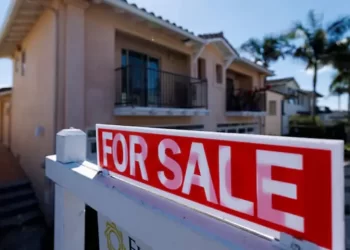TALLINN, Estonia (news agencies) — A wave of disappointment swept over opposition activists in Belarus last week as the biggest East-West prisoner swap since the Cold War unfolded and they learned it included none of the hundreds of political detainees who’ve been locked up for years by its authoritarian leader.
That dismay is especially poignant since Friday marks the fourth anniversary of the 2020 election — widely seen at home and abroad as fraudulent — that gave President Alexander Lukashenko his sixth term. That disputed balloting touched off the biggest protests and crackdown on dissent in Belarus in its post-Soviet history.
The Viasna human rights group estimates Belarus has about 1,400 political prisoners, including its founder and Nobel Peace Prize laureate Ales Bialiatski. Like many top opposition figures, Bialiatski is being held incommunicado.
“I am happy to see the Russians released, but I’m shocked that no one remembered about the fate of Belarusian political prisoners,” Bialiatski’s wife, Natalia Pinchuk, told media. “I hope it was just the first round of the game involving the West, and Belarusians will also be freed following representatives of Russia.”
The only prisoner freed from Belarus in the Aug. 1 swap was Rico Krieger, a German medical worker who was arrested there last year on terrorism charges. He was among 16 imprisoned Westerners and Russian dissidents traded for eight Russians held abroad.
Viasna has raised the issue with Western diplomats, listing more than 30 political prisoners who need to be released as a priority, according to the group’s representative, Pavel Sapelka.
He said some Western countries have held confidential discussions with Lukashenko’s government, although he did not provide details.
The wait is excruciating for Pinchuk, who gets only occasional messages that Bialiatski is alive. She says his health has “significantly worsened,” he is barred from getting medications and is repeatedly placed in solitary confinement in his 10-year sentence on charges of financing the 2020 protests.
At least six political prisoners have died in custody.
Western governments know the harsh conditions in which her husband and others are held, “but I’m unaware that any Belarusian names were discussed as part of the exchange,” Pinchuk said.
Tatsiana Khomich, the sister of imprisoned opposition activist Maria Kolesnikova, had hoped to see her freed in the exchange.
“Obviously there was a window of opportunity for freeing Belarusians, because Minsk was involved in the scheme and took part in negotiations with Berlin regarding Krieger,” Khomich told news agencies. “But Western politicians couldn’t or didn’t want to use that window.”
With her short hair and vibrant smile, Kolesnikova was known for appearing at Minsk demonstrations and forming a heart with her hands. She was arrested in September 2020 after defiantly tearing up her passport at the border when authorities tried to deport her.
Khomich said she hasn’t heard from her sister for 1½ years. Kolesnikova, 42, who is serving 11 years in a particularly harsh prison, underwent surgery and was gravely ill, with her weight dropping to about 45 kilograms (99 pounds), her sister said.
“It has become obvious that neither Belarus nor Belarusian prisoners are a priority for Western partners,” Khomich said. “And it’s a very alarming signal for us.”
Kolesnikova was charged with helping organize the mass protests of the Aug. 9, 2020, election that lasted for months. More than 35,000 people were arrested and thousands were beaten. Many opposition figures were convicted and given long prison terms, while others fled abroad.
One who was forced to leave was opposition leader-in-exile Sviatlana Tsikhanouskaya, who said she admired Kolesnikova’s courage.
“We haven’t won yet, but we haven’t been defeated, because people haven’t given up,” Tsikhanouskaya told news agencies. “Many Belarusians are continuing resistance, thousands are paying a price for freedom in prisons. It became clear in 2020 that Lukashenko lost support of the majority of Belarusians.”
Tsikhanouskaya’s husband, Siarhei Tsikhanouski, was arrested after challenging Lukashenko in the election. She ran in his place, but was forced to flee the country. Tsikhanouski was sentenced to 19½ years.
Tsikhanouskaya, who has been lobbying Western leaders against Lukashenko, also expressed disappointment that no Belarusians were freed in the swap.









